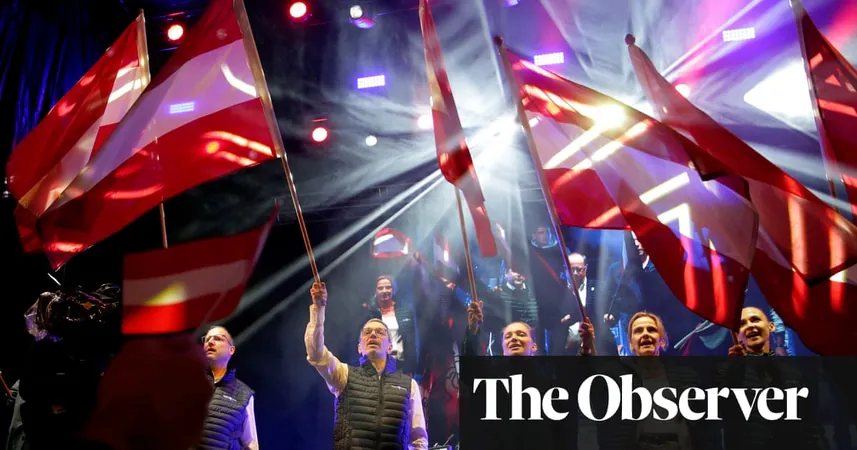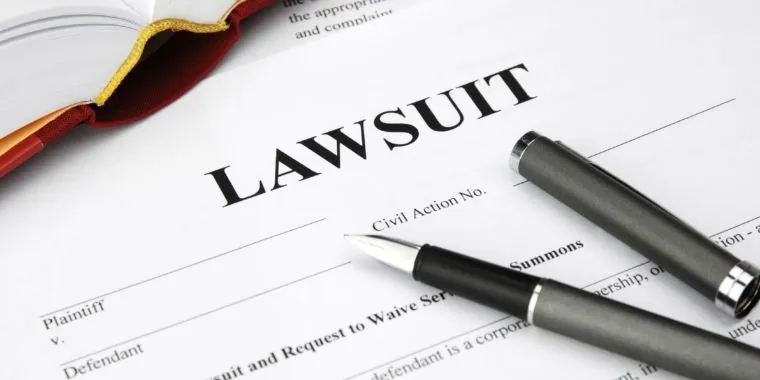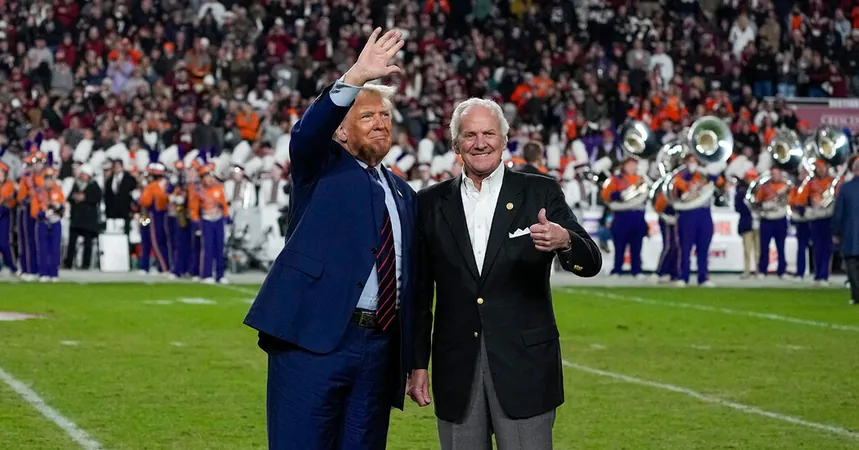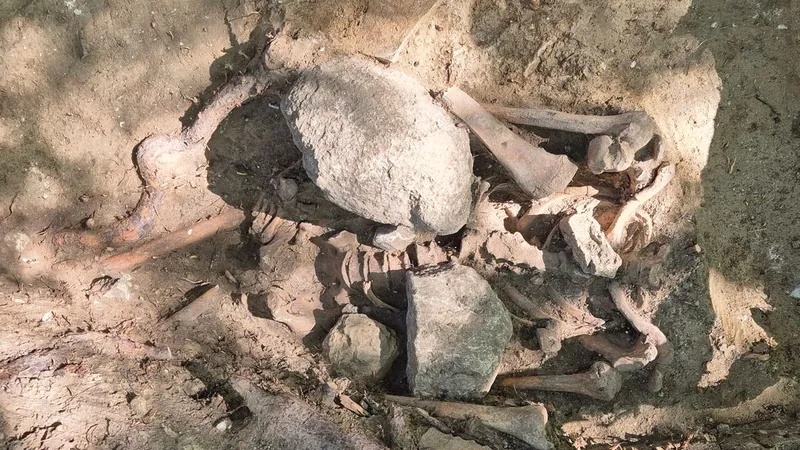
Moment of Truth: Austria Awakens to a Far-Right Shift in National Election
2024-09-29
Introduction
As the sun dipped behind the iconic St. Stephen’s Cathedral in Vienna, chants of “Herbert! Herbert! Herbert!” echoed through the crowd, rallying behind Herbert Kickl, the leader of Austria's far-right Freedom Party (FPÖ). This national election symbolizes a potential turning point for Austria, as Kickl promises voters the opportunity to “take our country back” in a bid that could see his party win an unprecedented number of votes.
Rising Popularity of the FPÖ
With recent polls indicating that the FPÖ may secure a majority, Kickl pledged “five good years” for Austria. His party has crafted a provocative narrative, capitalizing on rising fears regarding migration and crime, which were heightened by a recent terror scare that led to the cancellation of three Taylor Swift concerts in Vienna. Amidst ongoing inflation and tepid economic growth, the FPÖ has surged in popularity, amassing an 11-point gain since the last election in 2019.
Comparison to the Past
This resurgence comes in stark contrast to the party's decline five years prior, during the infamous Ibiza scandal that led to the resignation of former Deputy Chancellor Heinz-Christian Strache. The FPÖ has clearly regrouped since then, experiencing a dramatic evolution that aligns it with the resurgent far-right movements across Europe.
Kickl’s Campaign Strategies
Kickl’s choice of venue—a historic emblem of national pride—was intentional, echoing the legacy of his mentor Jörg Haider, a controversial figure who once transformed the FPÖ into its current anti-migrant framework. He pointedly remarked, “Just imagine what might have been if we had had Jörg Haider as chancellor,” as he engaged a crowd tinged with nostalgia and hope.
As children waved FPÖ turquoise balloons, Kickl’s discourse resonated with many segments of the audience as he criticized sanctions against Russia and lamented the so-called influence of “snobs and climate activists,” captivating his supporters with a vision steeped in nationalism. His most applauded moment came during his call for the “remigration” of those deemed unfit within Austrian society, promising to enforce stricter immigration policies.
Public Reactions
Responses from the audience highlighted the divisive nature of Kickl's message, with supporters arguing he reflects genuine patriotic sentiments, while others voiced grave concerns about the potential normalization of extremist views. “It was incredibly depressing to see what people applauded for,” expressed Alice, a financial services worker, reflecting the chilling implications of such rhetoric.
Current Polls and Political Landscape
Polls show the FPÖ leading with 27%, marginally ahead of the incumbent Austrian People’s Party (ÖVP), who trail closely at 25%. Meanwhile, the Social Democrats (SPÖ) find themselves in a distant third, illustrating a significant shift in the political landscape of Austria.
Environmental Concerns and Rising Extremism
In the aftermath of devastating flooding attributed to Storm Boris and the ongoing climate crisis, concern for the environment and the implications of rising extremism linger in voters' minds. However, Kickl’s support continues to garner enthusiasm among right-wing activists across Europe, with notable figures from Germany’s Alternative für Deutschland joining him on the campaign trail.
Current Government Stance
The ÖVP, under Chancellor Karl Nehammer, has strategically sought to echo the FPÖ's hardline immigration stance, indicating a willingness to engage with far-right sentiments to maintain governance. Nehammer has warned that Kickl poses a “security risk,” while engaging in a dance that suggests he might cooperate with the FPÖ post-election, setting the stage for potentially unprecedented coalition dynamics.
Voter Sentiment and the Future
Despite this electoral heat, many voters appear still undecided. They know the rising far-right is changing the country’s traditional politics, and for many, this election represents not just a routine vote but a “moment of truth.”
Conclusion
As Austria stands at this political precipice, the path forward may ultimately hinge on voter sentiment and the coalition choices forged in the wake of the impending election. Whether the nation will embrace a far-right agenda remains to be seen, but the implications could resonate profoundly for years to come.





 Brasil (PT)
Brasil (PT)
 Canada (EN)
Canada (EN)
 Chile (ES)
Chile (ES)
 España (ES)
España (ES)
 France (FR)
France (FR)
 Hong Kong (EN)
Hong Kong (EN)
 Italia (IT)
Italia (IT)
 日本 (JA)
日本 (JA)
 Magyarország (HU)
Magyarország (HU)
 Norge (NO)
Norge (NO)
 Polska (PL)
Polska (PL)
 Schweiz (DE)
Schweiz (DE)
 Singapore (EN)
Singapore (EN)
 Sverige (SV)
Sverige (SV)
 Suomi (FI)
Suomi (FI)
 Türkiye (TR)
Türkiye (TR)